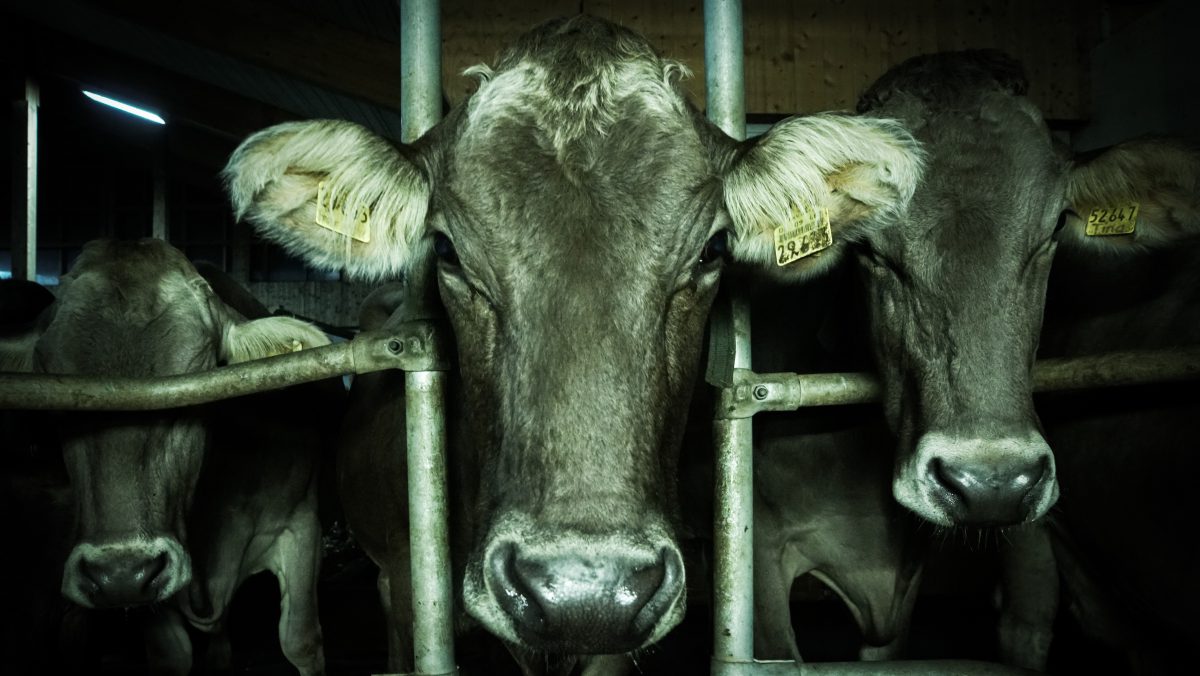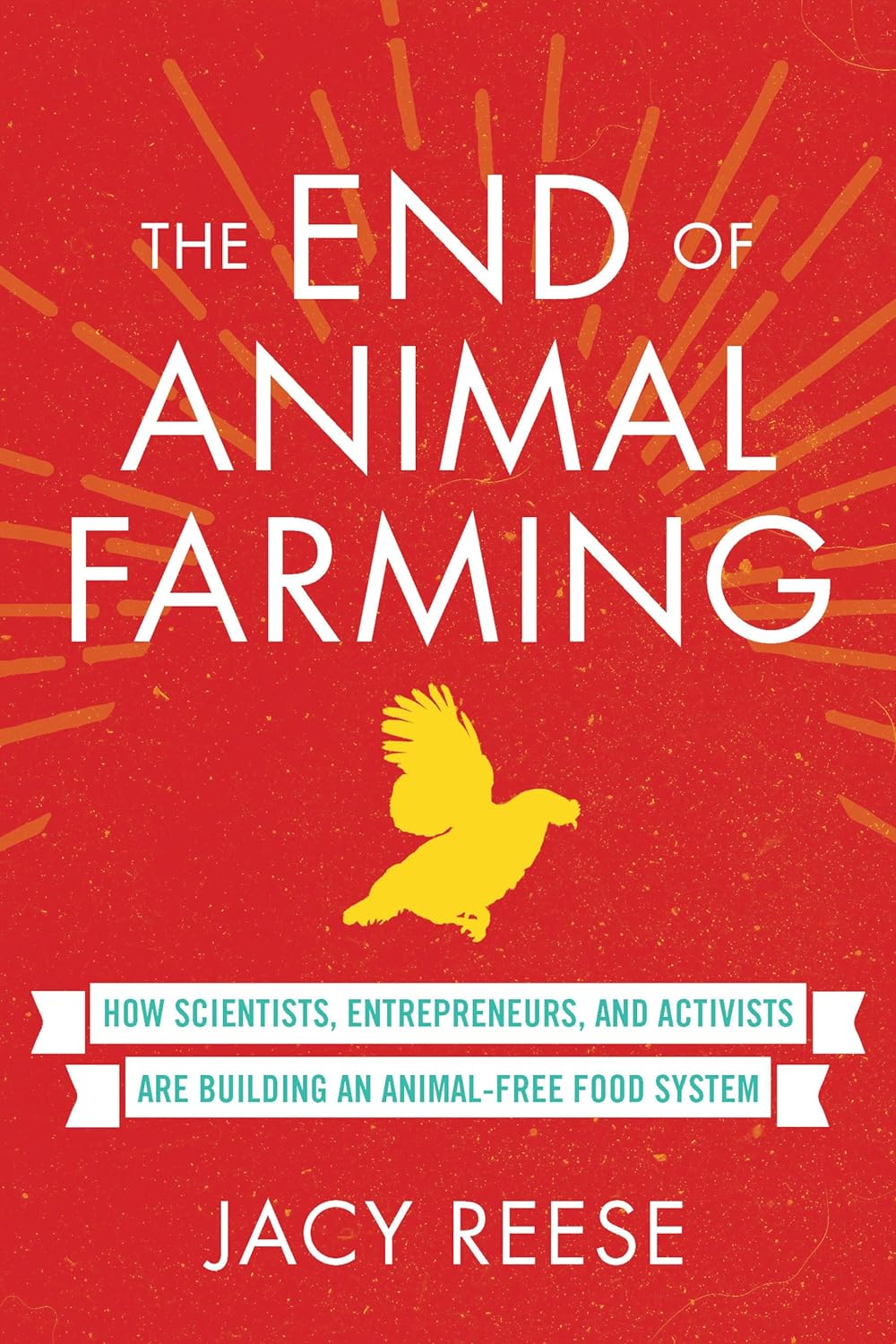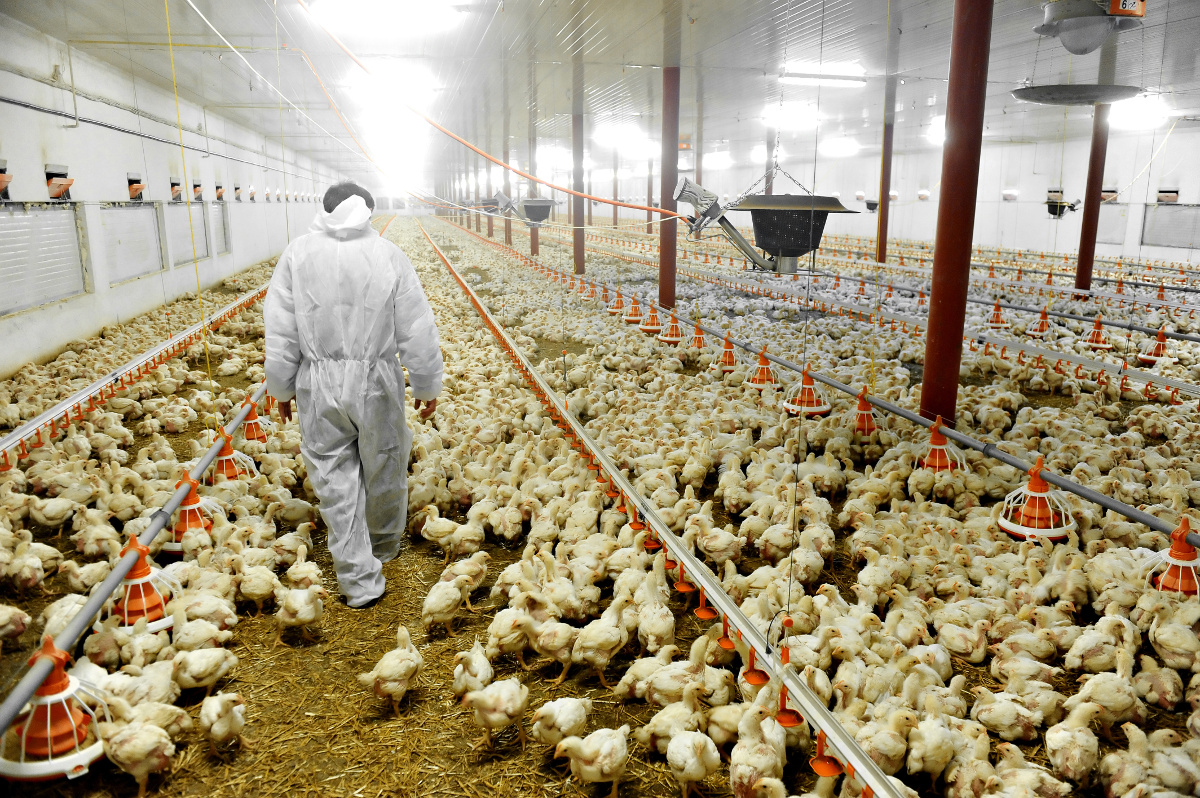Science / Tech
A World Without Animal Farming
Consumption decreases when people abandon animal products for aesthetic reasons, and aesthetic converts might become moral converts later.

A Review of The End of Animal Farming: How Scientists, Entrepreneurs, and Activists Are Building an Animal-Free Food System, by Jacy Reese (Beacon Press, November 6 2018, 240 pages).
In a world distressingly full of evil, we can discern moral progress by looking at the benighted past. Only two lifetimes ago educated people endorsed chattel slavery. The raises the sobering question: how might present arrangements appear to inhabitants of a more enlightened future civilization? Supposing that moral progress continues, there’s good reason to expect that our descendants will wince when they reflect upon our treatment of animals.
Every year, tens of billions of land animals, and more sea creatures, are killed in so-called “factory farms,” having lived lives of unrelieved mental and physical anguish, because humans enjoy eating their flesh. A chilling line in Thucydides’ Peloponnesian Wars comes to mind. The Greek historian reports a dialogue between a group of Athenian emissaries and the representatives of Melos, a city-state that wanted to remain neutral in the war between Athens and Sparta. The emissaries bluntly assert that “the strong will do what they can and the weak will yield what they must.” In other words, power justifies its own exercise. Sadly, that remark characterizes our relationship with animals: we take what they can, they yield what they must.

It doesn’t need to be this way. In his new book, The End of Animal Farming, Jacy Reese, the co-founder of the Sentience Institute, shows how an expanding moral circle and innovative technology can—and likely will—create a better future. He also offers constructive criticism to those who want to hasten this progress. Unfortunately, unless it unfolds much more rapidly than he anticipates, trillions of animals will live lives of torture before animal farming is finally abolished. Reese is aware of this grim reality, but his focus is on finding solutions.
He begins by describing the emerging, if belated, scientific consensus on animal sentience. Philosopher, scientist and mathematician Rene Descartes notoriously held that animals are mere automata, machines. This view has exerted an inordinate amount of influence over scientists’ opinions, though it’s contrary to common sense and evidence alike. Reese quotes primatologist Frans de Waal, who said that “animal cognition” is “a term considered an oxymoron until well into the 1980s.” Even in the 1990s, some scientists were advised to avoid research in that area until after tenure.

Finally, in the early twenty-first century, scientists abandoned the old paradigm under the weight of new evidence. Neurologists recognized that animals possess the neurological substrates that are apparently responsible for consciousness in humans. Further evidence shows that many animals possess sophisticated emotional lives. Cows grieve for their calves when they are separated from them. Elephants pause at places where their relatives have died, sometimes laying down branches as if to memorialize the location. Reese, who generally writes with restraint, cannot resist mocking the remaining sentience-deniers:
Members of the scientific community who took this Cartesian view in the past are either changing their minds or moving to the sidelines. (I imaging this is causing them to feel somewhat embarrassed. Then again, even if their behavior seems consistent with feelings of embarrassment, we can’t really know, can we?)
It’s one thing to recognize that animals are sentient, another to accept the moral implications of this, and still another to act upon them. You don’t have to be David Hume to think that people are seldom moved by abstract moral reasoning alone. Fortunately, several independent trends are converging to make these discoveries resonate emotionally. Urbanization has meant that more people are living with pets, companions that they are likely to see as possessing moral worth. Graphic footage of the insides of factory farms, one of the most powerful weapons in the animal welfare activist arsenal, also packs a visceral punch.
Reese briefly mentions Upton Sinclair’s novel, The Jungle, which exposed the horrendous working conditions in meat-packing plants in the early 1900s, galvanizing reform efforts. To dwell on this a bit more: Sinclair complained that he aimed for the public’s heart, but hit it in its stomach. That is, his work elicited more disgust than it did the sympathy for workers he intended. Something similar is probably true of factory farming footage, but it might not matter much. Consumption decreases when people abandon animal products for aesthetic reasons, and aesthetic converts might become moral converts later.
The campaign against animal products is simultaneously a campaign for humane—and tasty— alternatives. These are improving rapidly thanks to innovative companies like Just, Inc. (previously Hampton Creek), Impossible Foods and Beyond Meat. Reese’s profiles of these companies and the entrepreneurs who created them should interest technophiles. One curious tidbit is this: The Impossible Burger, Impossible Foods’ signature product, derives its meaty quality from a compound called “heme” that is apparently responsible for 90 percent of beef’s taste. Heme is highly concentrated in blood, but plants contain small amounts of it which yeast can multiply for commercial purposes.
Entrenched food giants are taking notice of these new products and reacting in different ways. Tyson Foods has invested in Beyond Meat. That suggests which way the winds are blowing (though we might suspect a ruse to control, and ultimately kill, a rival product). One defensive strategy is to deny newcomers access to familiar labels. In 2015, Unilever Food Solutions unsuccessfully attempted to sue Hampton Creek on the grounds that its eggless “Just Mayo” should be called something else. Similar challenges have been raised against using to the word “milk” to describe plant-based products. (If the dairy industry had their druthers, almond milk would probably have to be called “maggot puss”).
A more ambitious alternative to animal products, touted veganism’s moonshot, is so-called “cultured meat” or “clean meat”—basically, meat grown from living animal cells. Although Reese’s discussion is characteristically balanced, I came away more skeptical of the enterprise than I had been. The development seems incredibly costly. It’s unclear how long it will take the public to get used to the idea of lab-grown meat after a product is available. Moreover, these extravagant efforts seem to concede that plant-based products aren’t “real meat” or are second-rate for some other reason. I’m inclined to think that improving, and better marketing, the plant-based products that we already have is a better investment. On the other hand, there’s something to be said for a “try everything” approach.
One of Reese’s most contentious claims is that all animal farming must be abolished. He has three arguments for this. First, animal exploitation is intrinsically wrong. Second, small specialty farms are far less humane and worse environmentally than the public has been led to believe. Third, even the existence of a few genuinely ethical farms will lend an air of justification to animal farming as a whole. Unreflective consumers will take “psychological refuge” in the thought that they only eat ethical animal products—even if they aren’t very diligent about making sure these products come from ethical sources. I’ll focus on the first argument because it’s the most philosophically interesting.

Reese rests his case on a thought experiment. Surely it would be wrong for technologically sophisticated Neanderthals to “humanely” farm, and painlessly slaughter, human beings for food if they didn’t absolutely need to do so. One issue here is that some people claim that different standards apply to human beings, or any species whose ordinary adult members are above the threshold of intelligence requisite for “personhood.” Plenty of philosophers have argued against this “speciesist” view, but some philosophers, and probably most ordinary people, accept it. An argument that doesn’t require the rejection of speciesism it might have been better rhetorically.
Second, Reese seems to accept some version of consequentialism, the view that the moral status of actions depends upon the goodness of their actual or expected consequences. This is especially clear in the final chapter when he estimates that the cumulative moral worth of earth’s insects might be “five to fifty times greater than the total moral worth of all farmed animals.” Presumably, it would also be greater than the total moral worth of all living humans too, though he doesn’t say this. These conclusions sit awkwardly with his insistence that animal farming is intrinsically wrong.
Imagine that chickens were genetically engineered to feel no pain or, better yet, to enjoy their captivity. When it’s slaughter time, they willingly walk to the farmer’s tree stump like serene martyrs, necks outstretched, waiting for the ecstatic moment when the axe releases them from the mortal coil. If consequentialism is true, then we might ask why adding a huge numbers of such blissful creatures wouldn’t outweigh the badness of exploitation, making the world better overall. In fairness, this objection is purely theoretical; Reese’s case for abolishing animal farming is strong notwithstanding.
What I find especially impressive is Reese’s measured criticism of the vegan startups he champions. He neither glorifies them in unqualified terms, nor gives the impression that nothing could ever be good enough. Occasionally his critiques seem petty, as when he scolds Ripple Foods for put-downs of competitors’ animal-free products. Reese thinks vegan companies should cooperate, training their firepower on the Great Satan that is big agribusiness. I sympathize, but also think it’s unrealistic to expect them not to compete over the small consumer base of committed vegans. Some amount of commercial friction seems inevitable.
At the same time, the inclusion of these exacting complaints serves to bolster the impression that Reese’s hopeful conclusions are based on impartial, scrupulous analysis, not wishful thinking. The End of Animal Farming has helped convince me that ethically-guided entrepreneurship and reflective activism have put a better, more compassionate future within reach.






